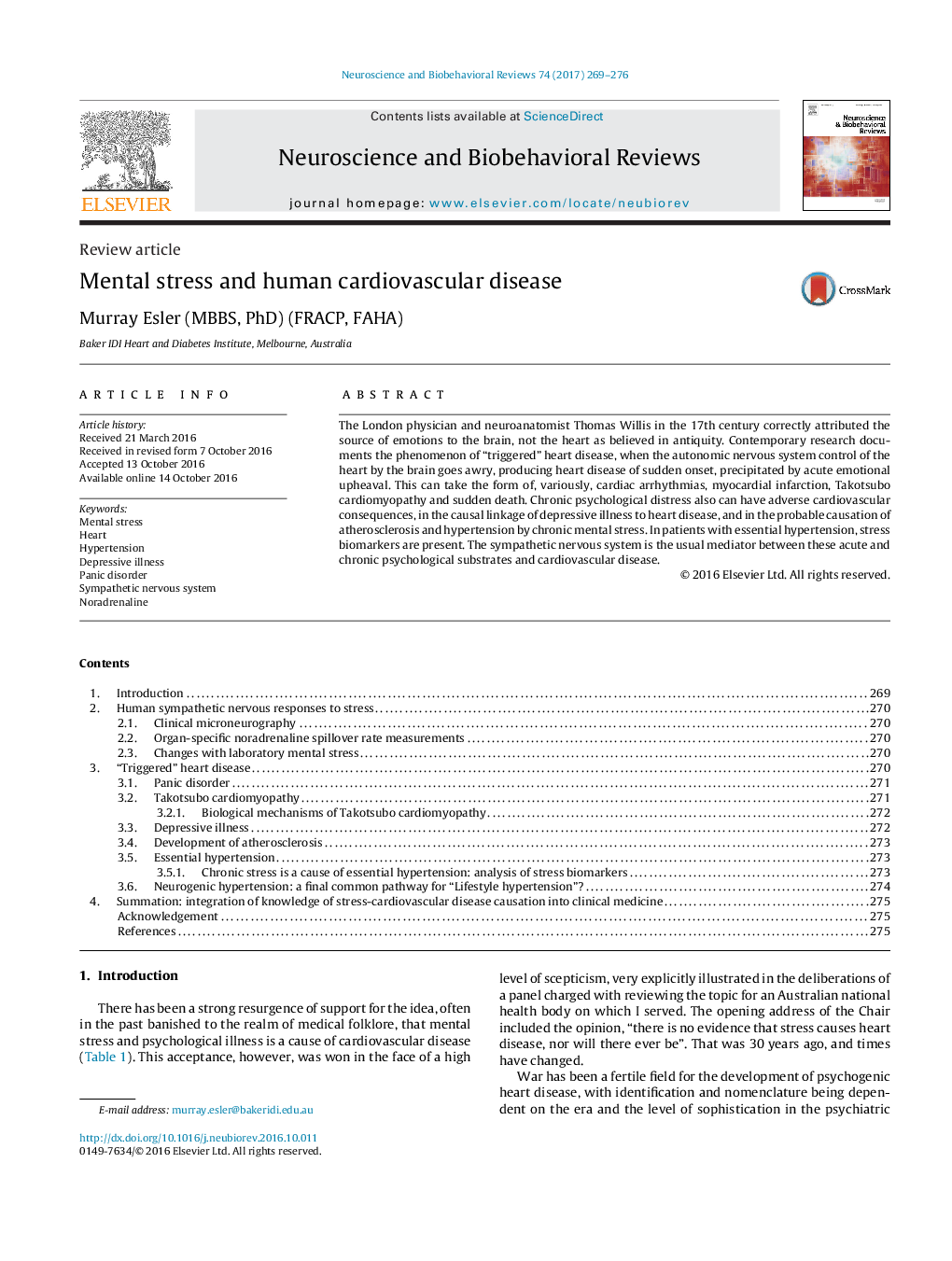| Article ID | Journal | Published Year | Pages | File Type |
|---|---|---|---|---|
| 5043616 | Neuroscience & Biobehavioral Reviews | 2017 | 8 Pages |
â¢Neural mechanisms can “trigger” acute heart disease.â¢Psychological distress, acute in panic disorder and chronic in depressive illness, can have adverse cardiac consequences.â¢Stress biomarkers, indicative of stress exposure, are present in essential hypertension.
The London physician and neuroanatomist Thomas Willis in the 17th century correctly attributed the source of emotions to the brain, not the heart as believed in antiquity. Contemporary research documents the phenomenon of “triggered” heart disease, when the autonomic nervous system control of the heart by the brain goes awry, producing heart disease of sudden onset, precipitated by acute emotional upheaval. This can take the form of, variously, cardiac arrhythmias, myocardial infarction, Takotsubo cardiomyopathy and sudden death. Chronic psychological distress also can have adverse cardiovascular consequences, in the causal linkage of depressive illness to heart disease, and in the probable causation of atherosclerosis and hypertension by chronic mental stress. In patients with essential hypertension, stress biomarkers are present. The sympathetic nervous system is the usual mediator between these acute and chronic psychological substrates and cardiovascular disease.
